The clicking noises coming from the wheel of our Land Rover had started the day before. We were driving through Chobe National Park in Botswana, and for the rest of the day I tried to convince myself that we had a branch stuck in the wheel. I didn’t want to actually check because I didn’t want to find out that we actually had a serious mechanical problem brewing.
As we were leaving the park the noise got worse and worse until finally I decided we had to stop before the wheel fell off or something. I suspected a problem with the wheel bearings and, since we had a spare set with us, I took apart the wheel only to discover that the bearings looked fine.
Out of ideas, I got out our trusty satellite phone and called up the Land Rover guru back in Superior, Colorado, who had helped us put together our vehicle for the trip. He patiently explained that there are actually two wheel bearings in each wheel, and described what I’d need to do to replace the other one.
I worked the rest of that afternoon and into the evening with Jen keeping a fire going to keep the lions and hyenas at bay. I finished the job the next morning. A few tour vehicles drove by and all of them stopped to ask if we needed help. At least we knew we wouldn’t be stranded there forever if I couldn’t get it fixed!
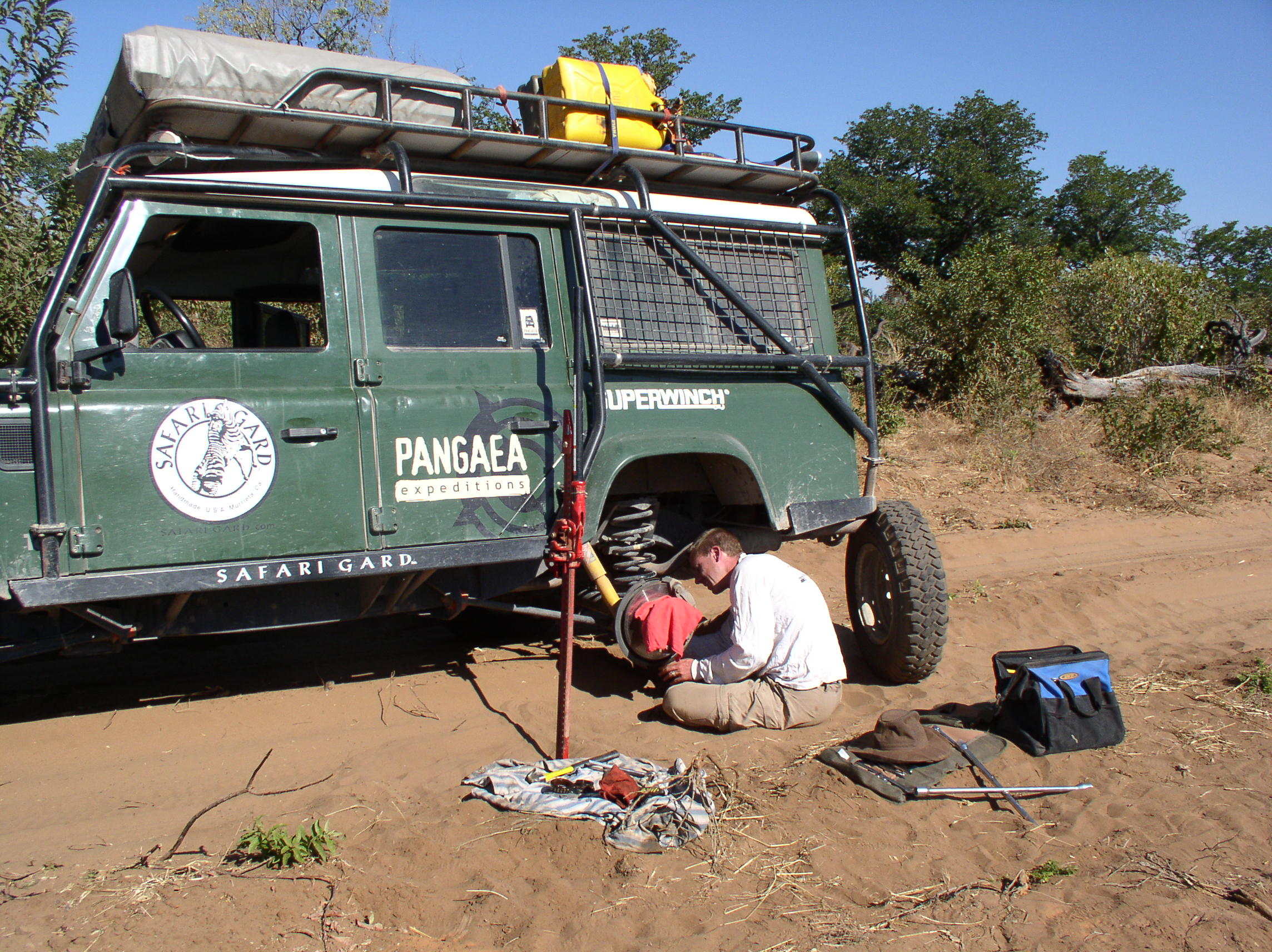
Witt fixes the wheel bearings on our Land Rover in Botswana
Overland Vehicle Maintenance Strategies
An oft-cited, and legitimate concern for aspiring overland travelers is vehicle maintenance, and especially repairs. Being on the road a long way from home means that you don’t have your local, trusted mechanic just down the street. Apart from recommendations of other travelers, there’s no good way to tell whether a mechanic is competent or honest. On top of that, as soon as the repair is made, you’ll likely leave town never to be seen again so it’s tough to return if the problem hasn’t been fixed properly. This is known as the “taillight warranty” — good as long as they can see your taillights. Unscrupulous mechanics everywhere have been known to take advantage of travelers this way.
If you’re not an enthusiastic backyard mechanic, all is not lost. Here are some strategies for avoiding the need for repairs in the first place and getting them done right when need arises.
Get a Reliable Vehicle for Your Trip
Cruising down the coast of Ecuador in a 1970s van with surfboards on top and bluegrass pumping through the speakers may sound romantic (or maybe it doesn’t), but remember that the older the vehicle the more maintenance it’s likely to need. If you are prepared repair it yourself, an older vehicle can be a good choice. Everything is simpler. Both you and a local mechanic should have an easier time repairing it. Lack of modern computers and electronics means that you’re less likely to suffer a failure that only a computer can diagnose. Plus (for some makes) parts can be easier to find for an older vehicle.
But if the thought of being stranded on the side of the road with a bad fuel pump is something you’d prefer not to think about, it may be worth considering a newer vehicle if your budget allows it. Modern cars are amazingly reliable, and a late model of pretty much any brand is likely to complete an overland trip with no maintenance issues at all.
Make Sure it’s in Top Shape Before Departure
Take your car to a mechanic before you leave home — preferably to “your” mechanic whom you’ve worked with for awhile. Tell him what you’re planning, and after he retrieves his jaw from the floor ask him to give the car a thorough going over. Replace anything that looks worn, even if normally you’d wait till the next oil change to fix it. Take a look at the owner’s manual and see what scheduled maintenance items are coming up. Fuel filter? Flushing the radiator? If it’s a significant milestone like a 60,000 mile service it might make sense to do it ahead of time.
While you’re talking to your mechanic, ask him to demonstrate a thorough inspection. Take notes and learn what things to look for. Ask about things that commonly fail on whatever model of car you have. For small, lightweight items like electronic sensors (or wheel bearings) it might be worth carrying a spare.
Regular Inspections and Maintenance
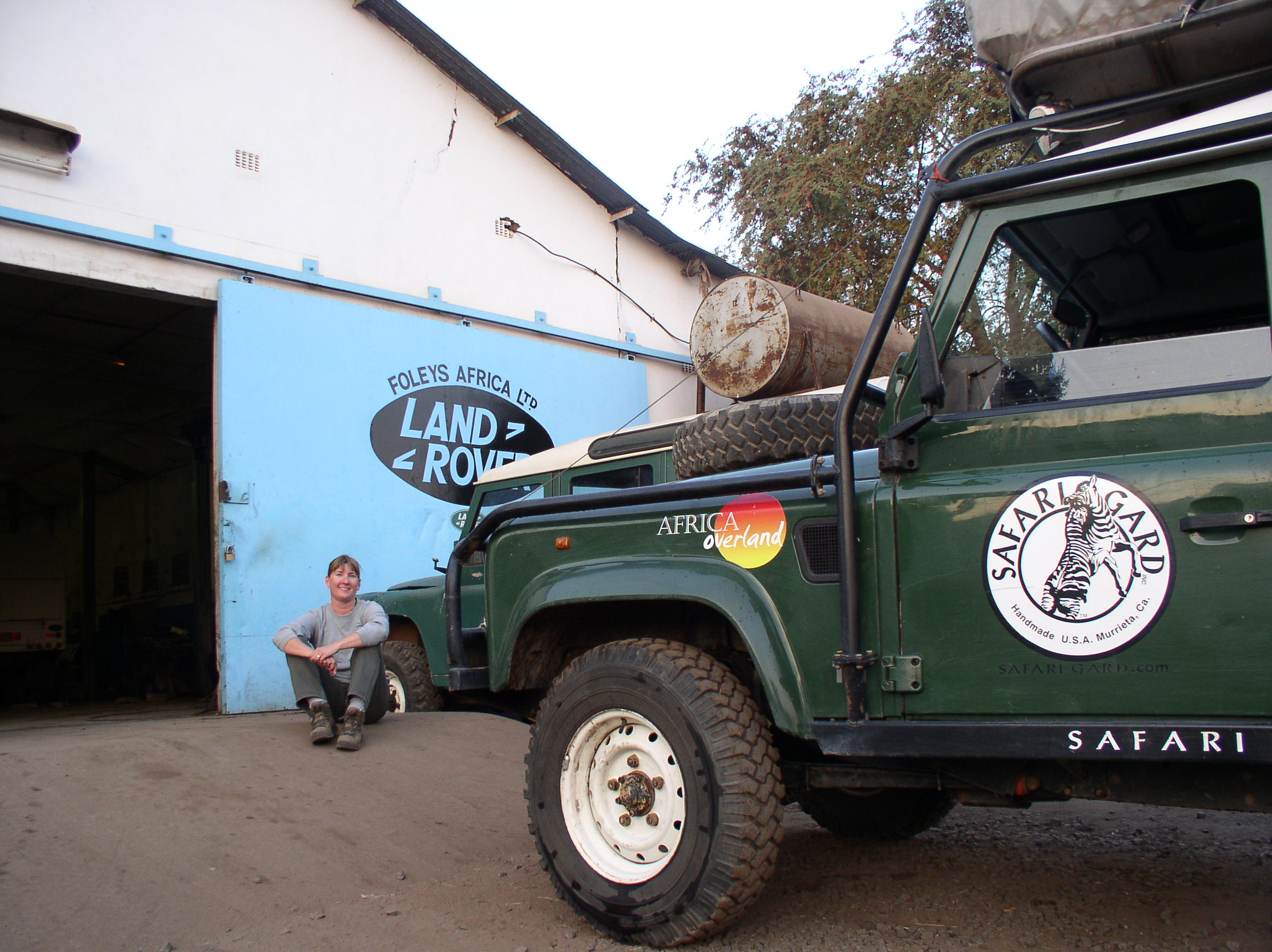
Our Land Rover, “Rafiki”, gets a tune up in Zambia
Once you’re on the road there are several things you can do that will reduce the likelihood of breakdowns. Just like at home, stick to a regular maintenance schedule. You’ll learn to say things in the local language that you never would on a regular holiday. “Cambio de aciete, por favor” isn’t really all that useful at the Grand Fiesta Americana Hotel bar, but it will come in handy on an overland trip in Latin America.
If you’re traveling quickly, you’ll need oil changes frequently. Don’t ignore them. Get in the habit of checking filters and fluids regularly. Some advocate a daily inspection, but if you’re driving a newer vehicle once a week or once a month should be enough.
Drive With Mechanical Sympathy

Crossing a rickety bridge in northern Angola
I can’t take credit for this phrase, but it’s perfect. Drive your car as though it were your friend — because after you’ve lived in it for a few months, it will be!
- Accelerate and brake more gently than you normally would. This is easier on your brakes and transmission, not to mention being safer.
- Take speed bumps and rough roads slowly. Even if you’re driving a tough 4×4 truck, constant hammering will eventually break something.
- The occasional exception to this is when driving on washboards or corrugations. If you’re on a straight road free of big obstacles like potholes, a higher speed can make the ride easier on you and your car.
- Use low gears when descending steep hills. Change down early and at low speeds to avoid jerky, high-rpm shifts, especially with an automatic transmission.
Keep in mind too that your overland vehicle is probably at or near (hopefully not over) it’s factory recommended maximum weight. That means all of the components, from the tires through the drive train to the engine, are already working at or near their design limits. Back off, swallow any macho pride that you may have, and your truck will thank you!
Pay attention to the sounds your car makes. When you hear a new vibration or noise, check it out. Hopefully you just need another tie down strap for your stuff in back. But noticing an impending mechanical problem early can save you from being stranded and may reduce repair costs.
If Something Does Go Awry
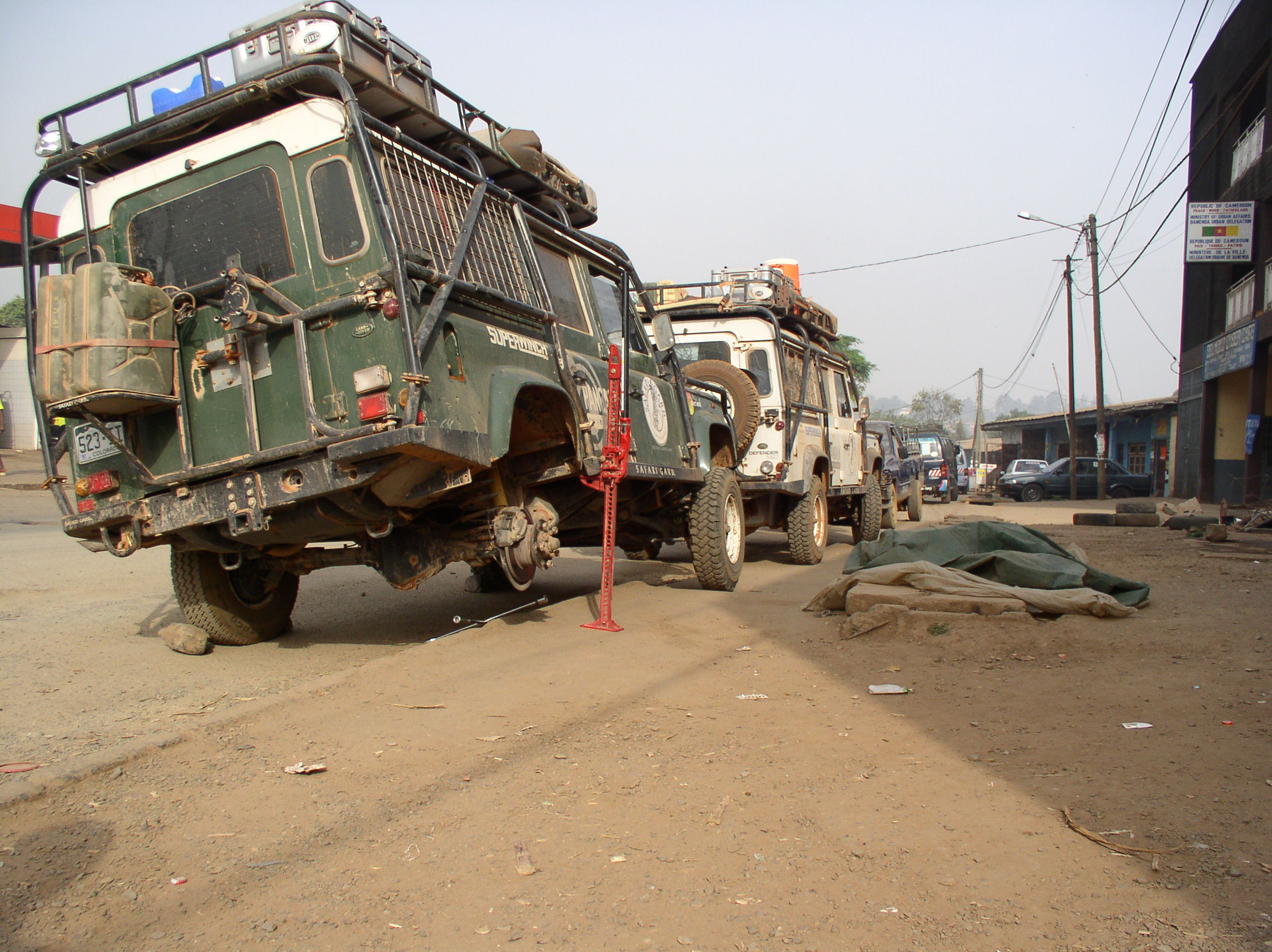
Tire issues in Cameroon
If you travel long enough, you’ll eventually find yourself in need of repairs. It’s great if you can repair it yourself, but if not you’ll need to find someone to help. Here are some tips to maximize your chances of getting the work done right the first time.
Get Recommendations
Try to get recommendations for a good mechanic, especially if your car needs major work. Post to an overlander’s social media group such as Overland Sphere, Pan Am Travelers (both on Facebook) or the Horizons Unlimited bulletin board. The iOverlander app and website has a category for repair shops where travelers can leave reviews. If you’re staying at a campground frequented by overlanders, ask the proprietor for recommendations. He may know of a local shop that has experience working on foreigners’ vehicles. Since he’s local the shop will want to keep getting referrals from him so you are more likely to get good service.
Oversee the Work
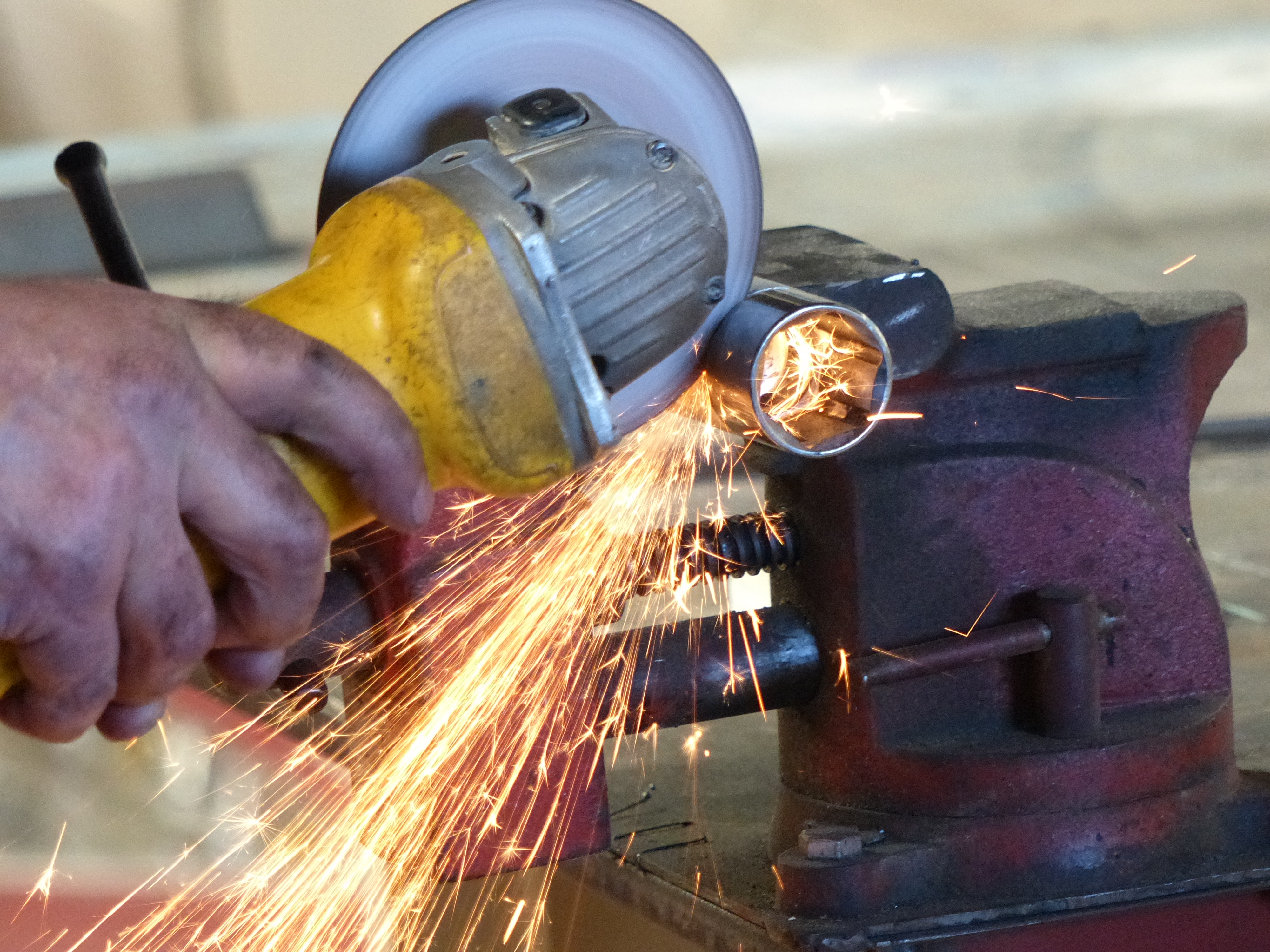
Unlike shops in the USA, in most places you’re allowed to go back into the shop and watch the work being done. Even if you haven’t a clue what’s going on, your presence might encourage them to do a better job. Remember, they don’t know that you’re not a master mechanic yourself!
Use Dealerships
If you have a newer car, a dealership is more likely to have the computer diagnostics and specialized tools needed for later models. Going to a dealership, though, is unfortunately not a guarantee of a a good outcome.
Do it Yourself
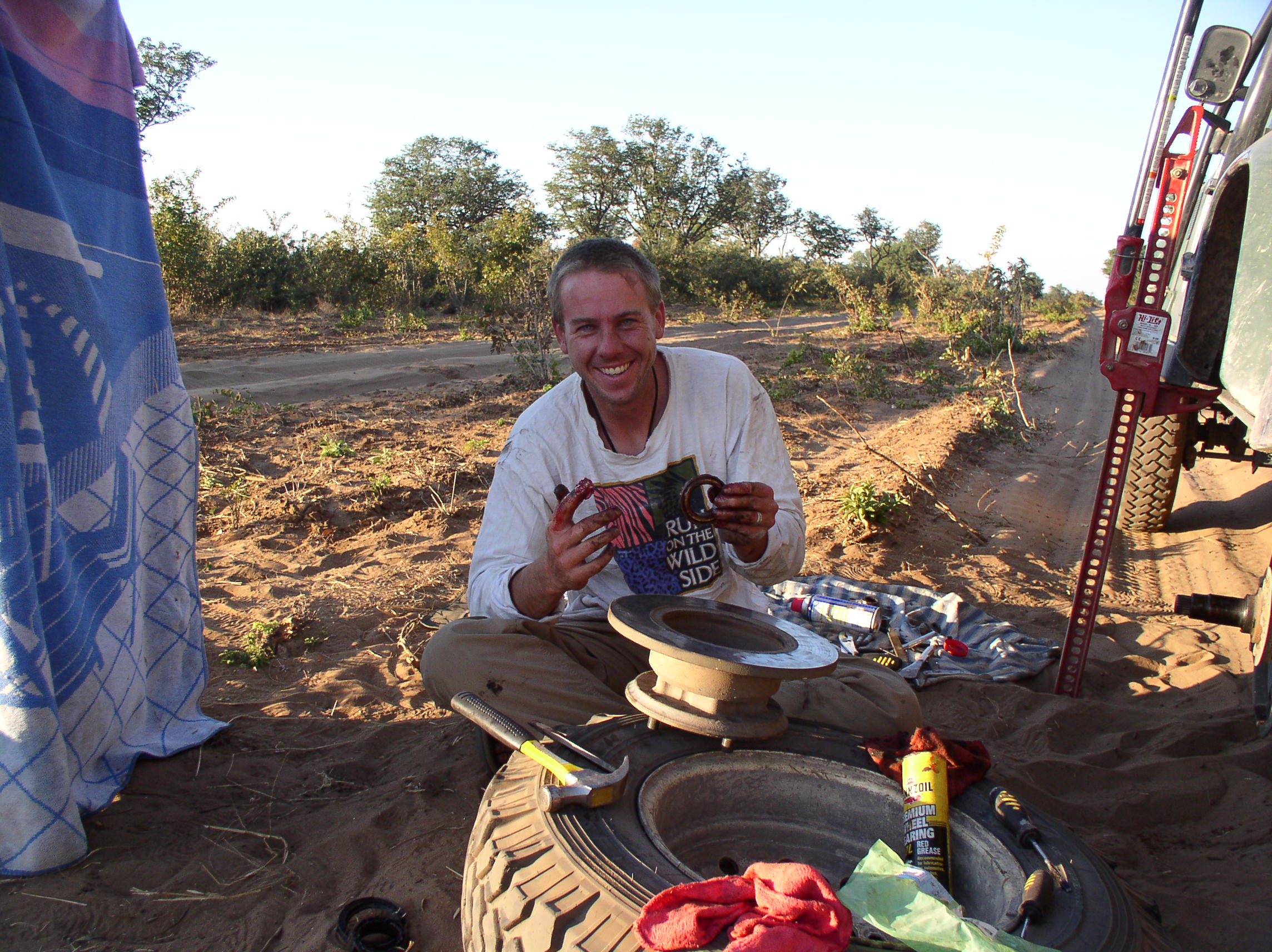
Even if you don’t have a lot of know-how, don’t be afraid to try repairs yourself. Google the problem you’re having, and you’ll probably find a backyard mechanic with a Youtube video on how to repair it. Bring a basic set of tools with you. This is especially true in a camper, since you’re more likely to need to make minor repairs to the RV systems than to the vehicle itself.
During our travels in Latin America, I always took our van to a shop for oil changes. Without the tools to collect and properly dispose of the used oil, it was easier to have the work done by a professional mechanic. I always hung around the shop during the service. I also tried to remember to check the oil shortly afterward in case they forget to tighten the drain plug or something.
During our trip through the Americas breaking down was the biggest stress factor for me, especially early in the trip. We had a number of fuel-system related problems that even caused us to question our whole trip a couple of times. Eventually though, with the help of local and expat mechanics along the way, we got everything sorted out. After that we enjoyed 18 months of completely trouble-free travel. Prepare your car beforehand and take good care of it on the road and you’ll be rewarded with a reliable home on wheels.
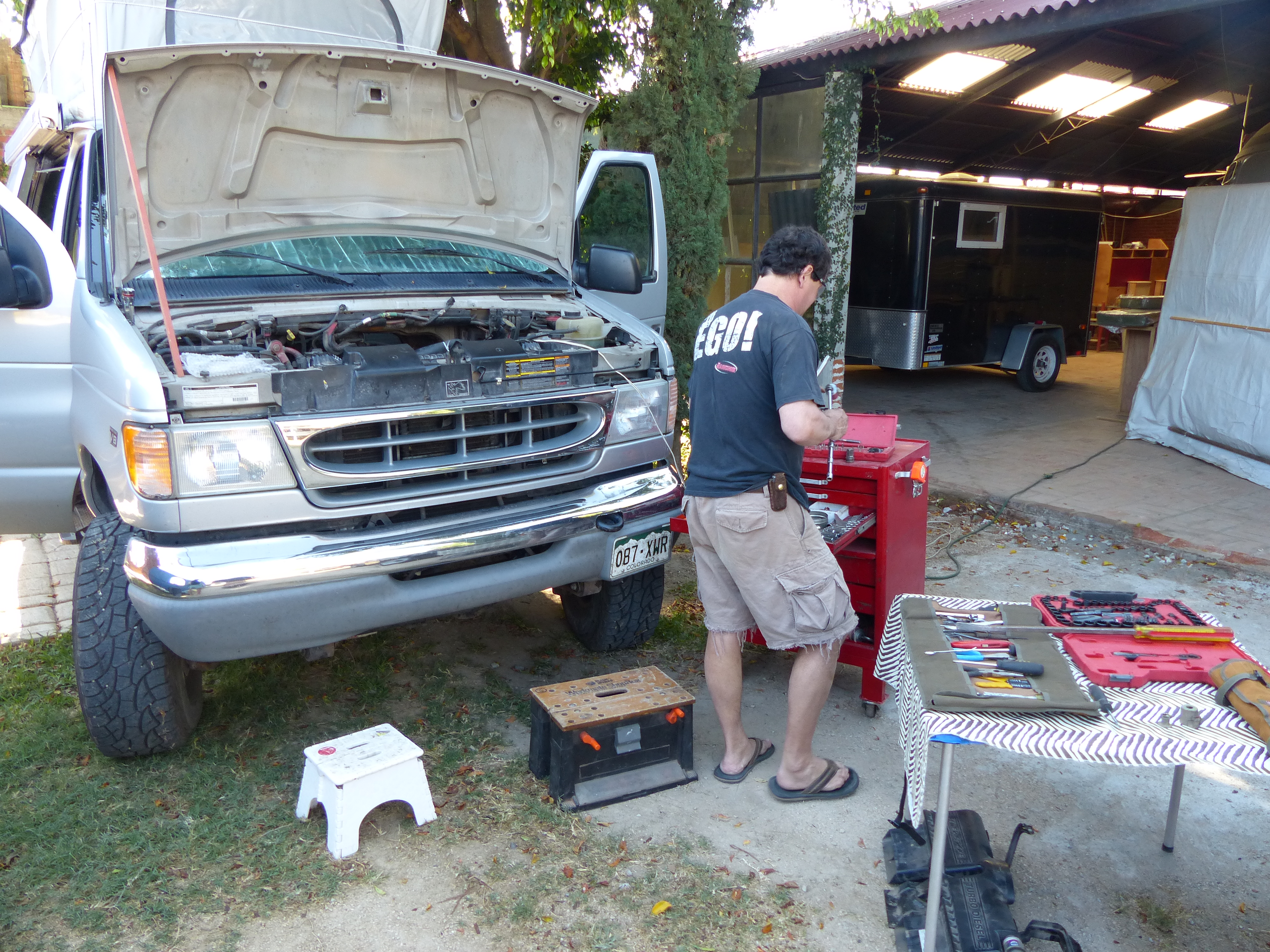
Calvin helps diagnose our Sparksmobile engine issues at the Overlander Oasis near Oaxaca, Mexico

Leave a Reply